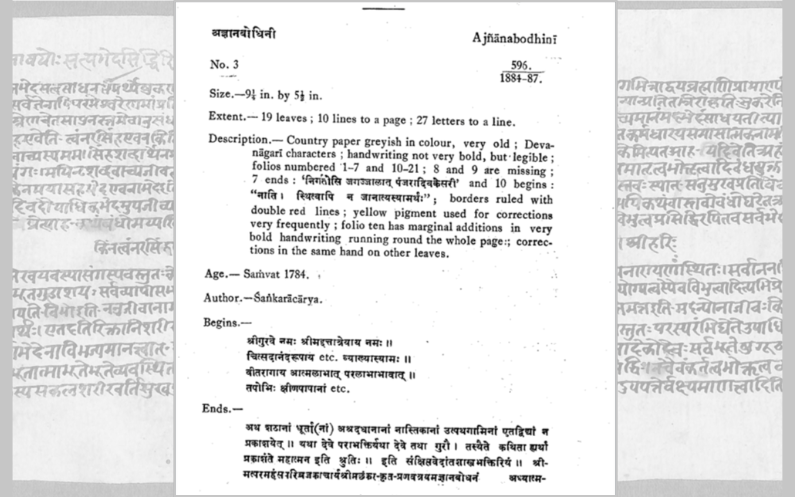Website: https://www.panditproject.org/vedantabori
Description: Prosopographical Database of Indic Texts (PANDiT) is a digital humanities project with a unique and ambitious task: to create a database for the vast world of South Asian letters. The name stands for the Sanskrit title of a virtuoso scholar with full mastery of traditional knowledge systems, but as an acronym it also states the project’s main objective: the creation of a Prosopographical Database of Indic Texts. Broadly stated, PANDiT seeks to store, curate, and share reliable data on works, people, places, institutions, and manuscripts from premodern South Asia, in addition to relevant secondary sources, and to do so across period, language, discipline and subject matter. It is designed as an interactive web-based repository that scholars of every South Asian specialty and interest can contribute to and as a basic tool on which they will routinely come to rely. PANDiT has been digitizing and importing the contents of the Bhandarkar Oriental Research Institute in Pune, India (BORI)’s three descriptive catalogues of Vedānta manuscripts (Descriptive Catalogue of the Government Collection of Manuscripts, Vedānta, Vol IX, Part I-III). Since November of 2017, the Vedānta BORI Project has meticulously curated and analyzed data related to almost a thousand Vedānta manuscripts. The data drawn from these volumes–––consisting of hundreds of authors, teachers, scribes, and works, and thousands of lines of Sanskrit extracts–––are an invaluable resource for students and scholars of Sanskrit scholastic and religious histories.
Contributors:
- Ajay Rao, Associate Professor, Department of Historical Studies and Department for the Study of Religion, University of Toronto
- Jonathan Peterson, PhD Student, Department for the Study of Religion, University of Toronto
- Sukshmadarshi Maharaj, PhD Student, Department for the Study of Religion, University of Toronto
- Anusha Sudindra Rao, PhD Student, Department for the Study of Religion, University of Toronto

